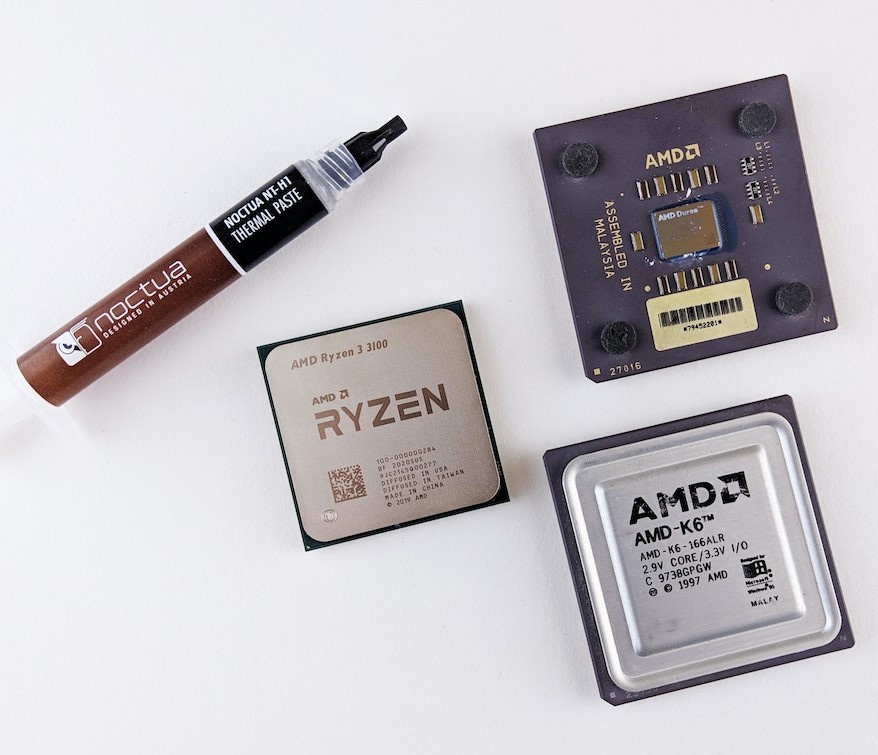A computer processor, continuously appertained virtually as a CPU(Central Processing Unit), is a crucial element of a PC system. It’s the” brain” of the PC, accountable for executing commands and acting computations that force the computer’s operation. There are also some critical components of PC processors prosecution of instructions The CPU fetches, decodes, and executes instructions from programs and operations. Those instructions can vary from introductory computations to complicated operations. Timekeeper velocity Processors perform at a specific timekeeper pace measured in gigahertz( GHz). A superior timekeeper velocity common method the CPU can execute commands greater snappily. Nevertheless, other factors, such as armature and effectiveness, also affect average overall performance. Cores cutting-edge CPUs continuously have more than one cores, each suitable for executing commands singly. This permits analogous processing, which means the CPU can deal with more than one responsibility contemporaneously, perfecting the usual overall performance. Cache Processors have cache memory, that’s faster than fundamental reminiscence( RAM) and stores continuously used records and commands. This allows for lessening the time it takes for the CPU to pierce critical records. Architecture-distinct CPUs use colorful infrastructures, similar to x86, ARM, or RISC-V. Those infrastructures mandate how instructions are performed and might impact software harmony. Preparation Set CPUs have a specific practice set, which defines the set of operations they can carry out. Common coaching units consist of x86- 64( used in utmost desktops), ARM( used in smartphones and drugs), and others. Production procedure CPUs are manufactured with the usage of superior semiconductor tactics. Decrease manner bumps normally cause in addition strength-effective and hastily processors. Thermal design electricity(TDP) TDP is a degree of the quantum of warmth a CPU generates under normal workloads. It helps determine the cooling situations for a PC machine. Included graphics some CPUs include integrated plate processors, barring the need for a separate plate card for introductory plate obligations. Those are usually set up in laptops and price range computer systems. Overclocking enthusiast addicts may additionally overclock their CPUs to run at superior timekeeper faves than their rated specifications. This will provide overall performance boosts however also requires superior cooling and can void guarantees.
Processors are a critical detail in all calculating bias, from laptop and PC systems to smartphones, pills, waitpersons, and indeed bedded structures. The selection of CPU can notably affect a computer’s overall performance and abilities, making it crucial attention whilst designing or copping a laptop.
Importance:
A PC processor, often stated as a CPU (principal Processing Unit), is an important element of a PC gadget. It is essentially the “mind” of the computer, chargeable for executing commands and appearing calculations that drive the PC’s operation. Right here are some key aspects of PC processors:
Execution of commands: The CPU fetches, decodes, and executes instructions from programs and programs. Those instructions can vary from fundamental mathematics calculations to complex operations.
Clock pace: Processors operate at a selected clock speed measured in gigahertz (GHz). A better clock pace typically method the CPU can execute instructions more fast. However, different elements, together with architecture and performance, additionally affect normal overall performance.
Cores: modern CPUs frequently have a couple of cores, every able to execute commands independently. This permits parallel processing, meaning the CPU can deal with more than one responsibility simultaneously, enhancing average performance.
Cache: Processors have cache memory, which is quicker than principal reminiscence (RAM) and shops frequently use facts and instructions. This helps reduce the time it takes for the CPU to get admission to critical facts.
Structure: specific CPUs use numerous architectures, which include x86, ARM, or RISC-V. Those architectures dictate how instructions are carried out and can impact software program compatibility.
Guidance Set: CPUs have a specific preparation set, which defines the set of operations they are able to carry out. Not unusual education sets consist of x86-sixty-four (used in maximum computers), ARM (used in smartphones and pills), and others.
Production technique: CPUs are manufactured with the use of superior semiconductor methods. Smaller procedure nodes usually lead to extra energy-green and faster processors.
Thermal design power (TDP): TDP is a degree of the quantity of warmth a CPU generates beneath traditional workloads. It helps determine the cooling requirements for a PC system.
Incorporated portraits: a few CPUs include portrait processors, getting rid of the need for a separate photograph card for basic photo responsibilities. These are usually located on laptops and budget computers.
Overclocking: enthusiast users may also overclock their CPUs to run at better clock speeds than their rated specifications. This can offer overall performance boosts however, it also calls for more significant cooling and might void warranties.
Processors are essential in all computing devices, from computer and laptop computer systems to smartphones, pills, servers, or even embedded systems. The choice of CPU can substantially affect a PC’s performance and abilities, making it an essential consideration while designing or buying a computer.
Pc processors, additionally referred to as principal Processing units (CPUs), are of paramount importance inside the international of computing for numerous motives:
Execution of instructions: CPUs are accountable for executing the instructions of computer packages and packages. They carry out calculations, manage data, and manipulate diverse operations primarily based on those commands. Without a processor, a PC would be incapable of performing any computational tasks.
Overall performance: the rate and efficiency of a computer are fantastically dependent on the processor’s performance. Quicker processors can execute instructions greater quickly, leading to shorter response instances for software programs and stepped forward general gadget overall performance.
Multi-Tasking: contemporary CPUs frequently have a couple of cores, which allow multitasking. This indicates they can cope with more than one obligation concurrently. That is vital for walking a couple of applications, coping with historical past procedures, and making sure a responsive person enjoys it.
Software Compatibility: The structure and training set of a CPU can determine the compatibility of software. Many software applications are designed to run on unique CPU architectures (e.g., x86 for most computers, and ARM for cellular devices). Having a like-minded CPU is crucial for jogging various software program programs.
Strength performance: strength-efficient processors assist in reducing energy consumption, making them important for laptops, mobile devices, and information centers. Processors with decreased electricity requirements generate much less warmth and expand battery lifestyles in portable gadgets.
Specialized duties: some CPUs are designed for specialized responsibilities, along with portrait processing (portrait Processing devices or GPUs), synthetic intelligence (AI) inference (AI accelerators), or scientific computations (excessive-overall Performance Computing or HPC processors). Those specialized CPUs are essential for accelerating precise workloads.
Innovation and advancements: CPU manufacturers always innovate and enhance their products. This results in advancements in computing capabilities, permitting new programs, technologies, and experiences. Faster CPU power development in fields like device learning, gaming, and clinical studies.
Compatibility with hardware: The CPU’s socket kind and architecture must be compatible with other hardware additives like motherboards, RAM, and pictures playing cards. Selecting the right CPU guarantees that all components paint seamlessly collectively.
Security: present-day CPUs contain protection functions to defend against numerous threats, consisting of malware and unauthorized access. Those security measures are vital for retaining the integrity and confidentiality of information.
Destiny-Proofing: investing in a capable CPU can destiny-evidence your computer to a degree. A powerful CPU can cope with upcoming software and workload demands, prolonging the lifespan of your machine.
Financial effect: The CPU industry is a massive contributor to the global financial system, riding innovation, developing jobs, and assisting diverse era-associated industries.
In short, laptop processors are vital additives in all computing gadgets, enabling them to carry out a wide variety of obligations efficaciously and correctly. The selection of a CPU influences a PC’s speed, abilities, and compatibility with software programs and hardware, making it a vital consideration while designing, building, or purchasing a PC machine.
How does a cpu work?
The most important component of a computer that is responsible for carrying out computations and executing instructions for various tasks is a CPU, or processing unit of a decent size. It’s commonly referred to as the computer’s “mind”. This is a condensed analysis of a CPU’s operation:
Fetch: Instructions are retrieved from the computer’s memory (RAM) by the CPU. The CPU wants to get the commands one after the other since the system it is operating on is stored in memory.
Decode: The CPU decodes an instruction as soon as it is fetched in order to determine what action it wants to take. The CPU’s training decoder decodes binary code, which is used to represent instructions.
Execute: The CPU carries out the instruction by displaying the necessary operation after it has been interpreted. This process may involve data movement, arithmetic computations, logical comparisons, or special tasks.
Write again: The CPU can also write the stop-stop result back to memory or sign documents based on the give-up stop finish result of the execution. This stage modifies the laptop’s country mostly dependent on the outcome of the advice.
Repetition: Until the programme is finished, the CPU retrieves, interprets, executes, and writes lower back commands in a continuous loop.
In addition, CPUs have a variety of components and add-ons that enable them to do the following tasks efficiently:
The arithmetic logic unit (ALU) is responsible for executing both standard and complex mathematical operations, including addition, subtraction, multiplication, branching, AND, OR, not, and many more.
The control unit is in charge of overseeing the statistics and instruction flow within the CPU. It arranges for the retrieval, interpretation, and carrying out of commands.
Registers: In the CPU, registers are tiny, fast-moving memory places used to store brief statistics. They are essential to the computation and manipulation of facts.
Steering Cache: In order to improve efficiency, contemporary CPUs frequently include a schooling cache, a tiny yet fast-moving memory that holds frequently used instructions to cut down on the amount of time needed to get commands from RAM.
Pipelining: A technique used by several CPUs, pipelining involves multiple instructions being executed concurrently in many stages of execution. Its simultaneous processing enables a shared throughput for decoration.
Department Prediction: In order to reduce the cast off caused by conditional branches (such as if-else statements), CPUs lease branch prediction algorithms to count which commands this device is likely to execute subsequent.
Out-of-Order Execution: If specific dependencies are met, some modern CPUs are capable of carrying out commands out of order. This has the potential to enhance education in a similar way.
Superscalar Execution: If superscalar CPUs are able to operate in parallel and do not depend on statistics, they can carry out several commands in a single clock cycle.
High-end models and manufacturers might differ significantly in terms of a CPU’s exact composition and capabilities. Clock speed, core count, cache sizes, microarchitecture, and other factors all affect CPU performance. Over-normal performance CPUs are crucial for efficiently multitasking and navigating complex software applications, which makes them a fundamental component of state-of-the-art computer architectures.
Different types of computer processors:
- Microprocessor
- Core i3
- Intel Core i7
- Intel Core
- Arithmetic logic unit
- Core i5
- Celeron
- Pentium Pro
- Pentium
- Multi-core processor
- Pentium 4
- Pentium II
- Digital signal processor
- PowerPC
- Xeon
- Intel
- Single-core
- AMD Opteron
- Core i9
- AMD
- Pentium III
- Complex instruction set computer




